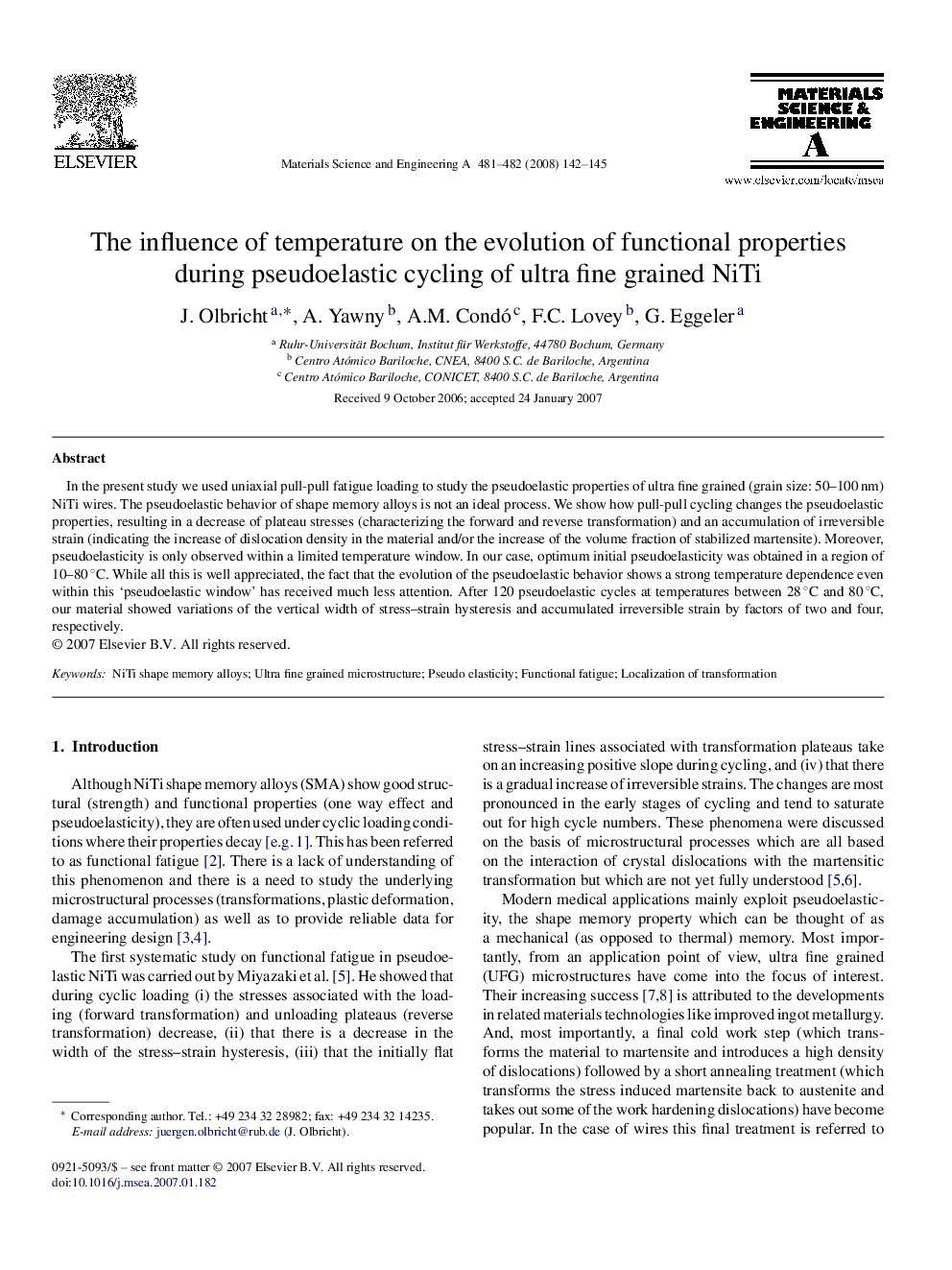| Article ID | Journal | Published Year | Pages | File Type |
|---|---|---|---|---|
| 1582457 | Materials Science and Engineering: A | 2008 | 4 Pages |
In the present study we used uniaxial pull-pull fatigue loading to study the pseudoelastic properties of ultra fine grained (grain size: 50–100 nm) NiTi wires. The pseudoelastic behavior of shape memory alloys is not an ideal process. We show how pull-pull cycling changes the pseudoelastic properties, resulting in a decrease of plateau stresses (characterizing the forward and reverse transformation) and an accumulation of irreversible strain (indicating the increase of dislocation density in the material and/or the increase of the volume fraction of stabilized martensite). Moreover, pseudoelasticity is only observed within a limited temperature window. In our case, optimum initial pseudoelasticity was obtained in a region of 10–80 °C. While all this is well appreciated, the fact that the evolution of the pseudoelastic behavior shows a strong temperature dependence even within this ‘pseudoelastic window’ has received much less attention. After 120 pseudoelastic cycles at temperatures between 28 °C and 80 °C, our material showed variations of the vertical width of stress–strain hysteresis and accumulated irreversible strain by factors of two and four, respectively.
